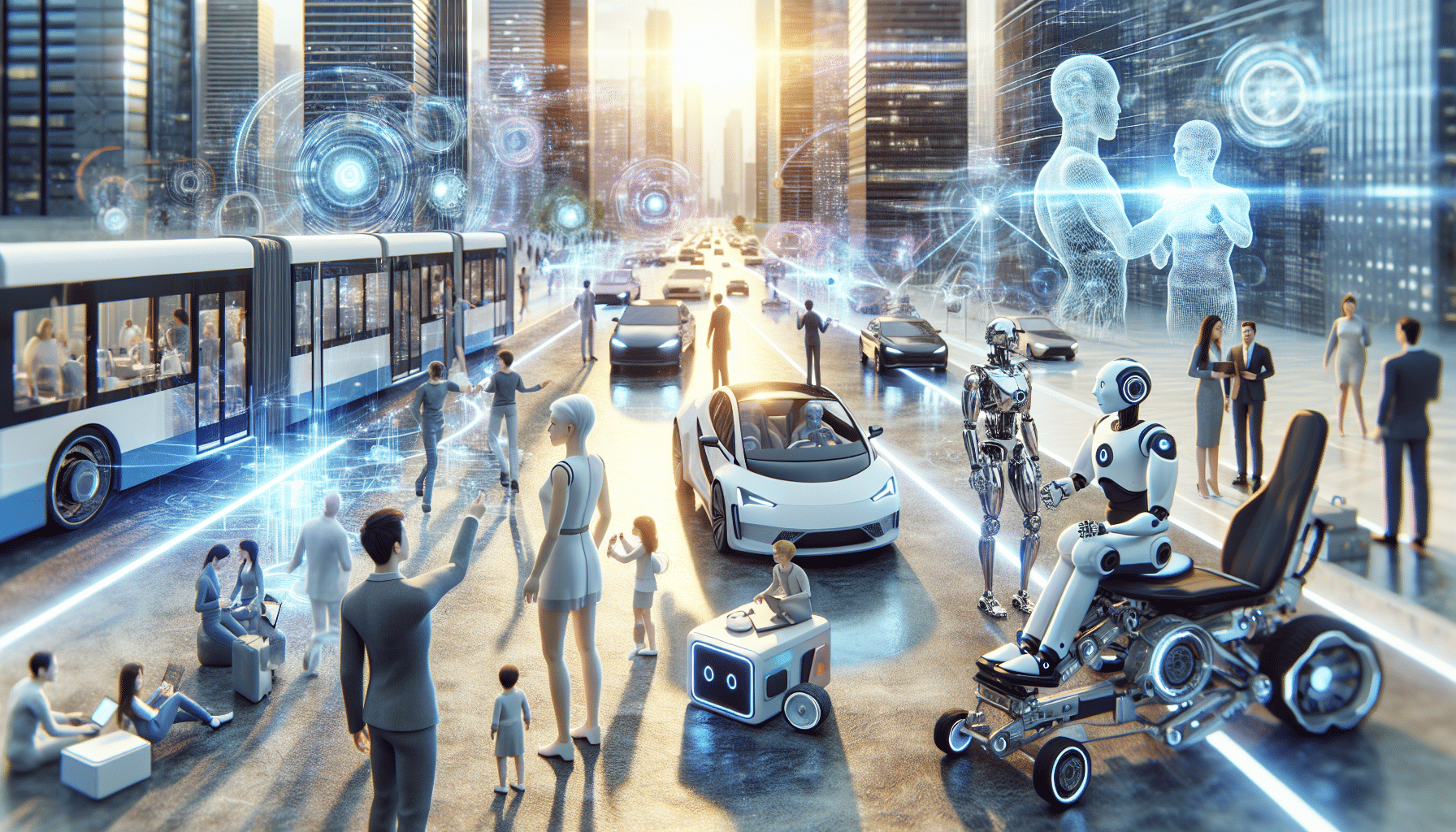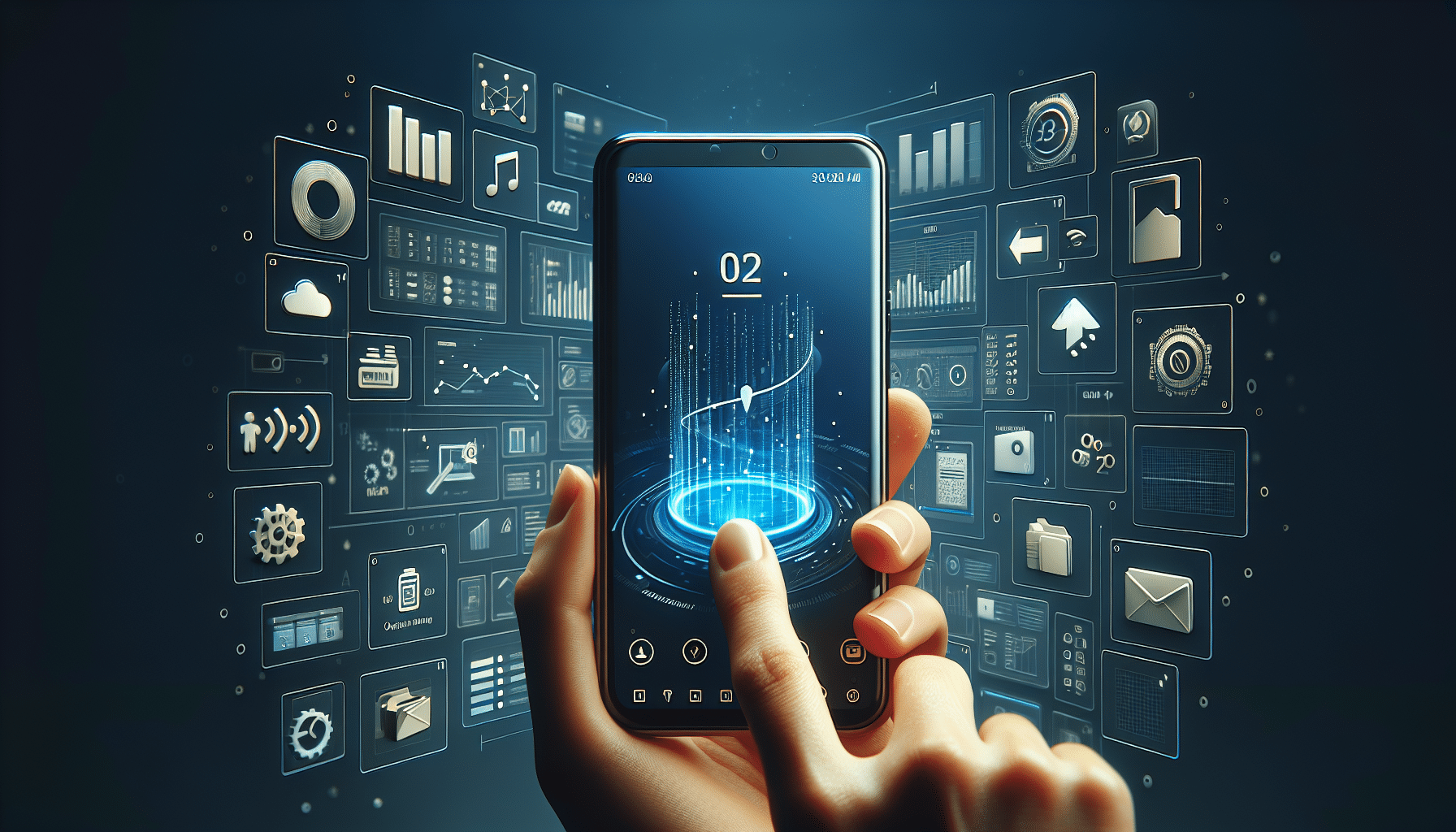Advertisements
🌐 Revolutionizing the future: Discover the technological advances that are transforming our society
Advertisements
In today's fast-paced world, technology is advancing by leaps and bounds, transforming the way we live, work, and communicate. Have you ever wondered how these advances are shaping our future? This article will take you on a fascinating tour of the most impactful and revolutionary innovations of today.
First, we'll explore how artificial intelligence is changing various industries, from medicine to entertainment. We'll also analyze the crucial role of robotics in task automation and its impact on work efficiency.
Advertisements
On the other hand, we cannot overlook the importance of the Internet of Things (IoT) and its ability to intelligently connect devices, improving our quality of life. We will also discuss the rise of renewable energy and how it is contributing to a more sustainable future.
Finally, we will address the ethical and social implications of these advances, raising crucial questions about privacy, security, and the impact on employment.
Get ready to discover how technology is not only improving our lives but also presenting new challenges and opportunities. 🌍🚀
Technological Transformations: The Present and the Future
We live in an era where technology is advancing by leaps and bounds, revolutionizing every aspect of our daily lives. From the way we communicate to how we work, technological advances are reshaping our society in significant ways. This article will explore some of the most impactful innovations and how they are shaping an exciting future.
Advantages of Technological Advances
1. Improved Quality of Life
Technological advances have significantly improved the quality of life. Advanced medical devices, innovative therapies, and more accurate diagnoses have allowed people to live longer and healthier lives. Telemedicine, for example, has made medical care more accessible, allowing for remote consultations and treatment.
2. Increased Efficiency
Automation and the use of artificial intelligence (AI) have increased efficiency in various sectors. Companies can now perform repetitive and tedious tasks more quickly and accurately, freeing up time for employees to focus on more strategic and creative activities.
3. Access to Information and Education
The internet has democratized access to information and education. Online learning platforms, such as Coursera and Khan Academy, have allowed people around the world to access quality education from the comfort of their homes.
4. Global Connectivity
Social media and communication platforms have connected the world like never before. People can interact in real time, regardless of geographical barriers, which has fostered collaboration and cultural understanding.
The Impact of Artificial Intelligence and Robotics
Artificial intelligence (AI) and robotics are transforming entire industries. In manufacturing, robots are performing tasks that were previously dangerous or too complicated for humans. This not only improves workplace safety but also increases productivity and reduces costs.
In the healthcare field, AI is being used to analyze large volumes of medical data, helping doctors make faster and more accurate diagnoses. Advanced algorithms can identify patterns in data that would be impossible for a human to detect, enabling earlier diagnoses and more effective treatments.
AI is also revolutionizing education. Personalized learning systems can adapt to each student's individual needs, offering specific content and exercises that enhance the learning process. This is especially useful in contexts where educational resources are limited.
The Rise of Green Technologies
With growing concerns about climate change, green technologies are gaining importance. Solar and wind energy are being adopted on a massive scale, offering sustainable alternatives to fossil fuels. Innovations in energy storage, such as lithium-ion batteries, are making these energy sources more viable and accessible.
Furthermore, electric vehicles are beginning to replace internal combustion cars, reducing greenhouse gas emissions. Companies like Tesla are leading the way with cars that are not only eco-friendly but also efficient and high-performance.
In agriculture, green technologies are enabling more sustainable practices. Precision agriculture, which uses sensors and drones to monitor and manage crops, is optimizing the use of resources such as water and fertilizers, reducing environmental impact.
Virtual and Augmented Reality: Transforming Experiences
Virtual reality (VR) and augmented reality (AR) are changing the way we experience the world. In the entertainment sector, these technologies are providing immersive experiences that go beyond traditional movies and video games. Users can immerse themselves in virtual worlds, interact with digital characters, and experience adventures more realistically.
In education, VR and AR are offering new ways to learn. Students can explore historical environments, conduct scientific experiments, and visit remote locations without leaving their classrooms. This not only makes learning more engaging but also improves information comprehension and retention.
In the professional field, these technologies are being used for training and education. Doctors can practice surgeries in virtual environments before performing them on real patients, and construction workers can simulate complex projects to identify and solve problems before they occur.

Conclusion
Technology is revolutionizing the present and shaping the future in unimaginable ways. Technological advances have permeated every aspect of our daily lives, from communication and entertainment to healthcare and education. With innovations such as artificial intelligence, the Internet of Things, and renewable energy, we are in a period of unprecedented transformation. These technologies are not only improving efficiency and productivity but are also opening up new opportunities to solve complex global problems, such as climate change and social inequality.
However, this rapid development also poses significant challenges, such as data security and the digital divide. It is crucial that policies and regulations keep pace with these advances to ensure that benefits are distributed equitably and risks are minimized. Collaboration between governments, businesses, and civil society will be essential to maximize the positive potential of these technologies.
In short, we are in a time of accelerated change where technology has the power to transform our society in profound and lasting ways. Staying informed and adapting to these changes will be essential to successfully navigate this new landscape. 🌍




